Hey there! If you're considering a university transfer, you're not alone; many students find themselves seeking new opportunities or better fits for their academic and personal goals. Crafting the perfect letter for your application is crucial, as it's your chance to express your motivations and aspirations clearly. In this article, we'll guide you through essential tips and a sample letter to help you make a compelling case for your transfer. So, let's dive in and get you one step closer to your academic journey!

Reason for Transfer
Choosing a transfer to another university often stems from a desire for better academic alignment, enhanced opportunities, and improved campus culture fit. For instance, students may seek specialized programs not offered at their current institution, such as Environmental Science at the University of California, Berkeley, known for its premier faculty and research facilities. Additionally, some students may aspire for a campus environment that aligns with their personal values, like a university with a strong commitment to sustainability, community engagement, or diversity initiatives. In many cases, logistical factors also play a role, such as being closer to family or accessing better internship opportunities in a specific geographic region, like New York City's thriving finance sector. Ultimately, transferring signifies a strategic move towards fulfilling educational and personal aspirations.
Academic Performance
Academic performance plays a critical role in university transfer applications. Universities often assess students based on GPA (Grade Point Average), course rigor, and extracurricular involvement. A strong GPA, typically above 3.0 on a 4.0 scale, demonstrates consistent academic success. Course rigor refers to the difficulty level of classes taken, with advanced placement (AP) or honors courses showcasing a student's readiness for more challenging work. Extracurricular involvement, such as participation in clubs, sports, or volunteer work, further enriches an application, reflecting personal interests and leadership skills. Additionally, relevant coursework related to the intended major can bolster transfer appeals, showcasing alignment with academic goals and commitment to continued learning. Overall, a holistic view of academic accomplishments can significantly enhance a transfer application to competitive institutions.
Desired Program and Institution
University transfer applications often reflect aspirational academic goals and personal growth. Students typically seek admission into programs aligned with their career objectives, such as a Bachelor of Science in Biology at prestigious institutions like Harvard University, renowned for its research facilities and esteemed faculty. The application emphasizes the student's passion for science, supported by relevant coursework and involvement in laboratory projects. Additionally, students elaborate on their reasons for transferring, highlighting the desire for a more challenging academic environment and better access to specialized resources. Engaging in extracurricular activities, such as volunteer work at local hospitals, demonstrates a commitment to the field, enhancing their application.
Future Goals and Objectives
Future academic aspirations at prestigious institutions such as Harvard University or Stanford University require meticulous planning and clear objectives. Specifically, the pursuit of a degree in Environmental Science aims to address pressing global challenges related to climate change and sustainability. Participation in extracurricular activities, including internships at local conservation organizations, enhances practical knowledge and fosters valuable networking opportunities. Long-term career aspirations involve working for international agencies like the United Nations Environment Programme, advocating for policies that promote ecological balance. Additionally, engaging in research projects focused on renewable energy sources could contribute to groundbreaking solutions. Global conferences provide platforms for collaboration with experts, further enriching my understanding of international environmental policies.
Extracurricular Activities and Achievements
Extracurricular activities play a crucial role in enriching the university experience, exemplified by student involvement in various organizations and events. Participation in academic clubs, such as the Debate Club at Springfield University, cultivates critical thinking and public speaking skills, while volunteer work with local charities like the XYZ Foundation fosters community engagement and social responsibility. Achievements, such as winning first place in the State Science Fair and being awarded the National Honor Society membership, showcase dedication to academic excellence and leadership. In addition, active membership in sports teams, such as the Women's Soccer Team, promotes teamwork and physical fitness, contributing to overall personal development. These experiences not only enhance a student's resume but also prepare them for real-world challenges.
Letter Template For University Transfer Application Samples
Letter template of university transfer request for undergraduate studies
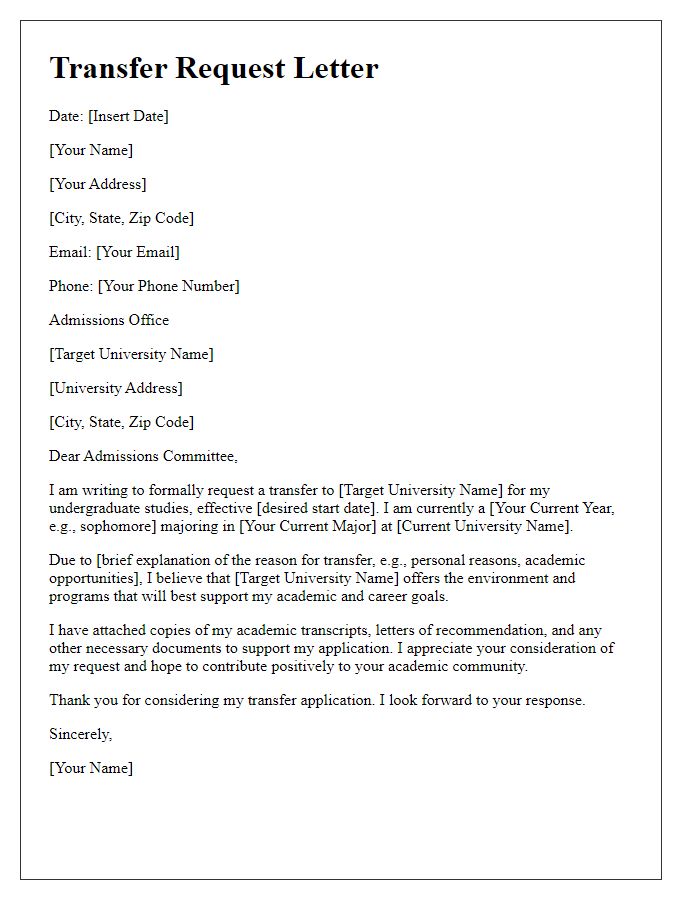
Letter template of university transfer application for graduate programs
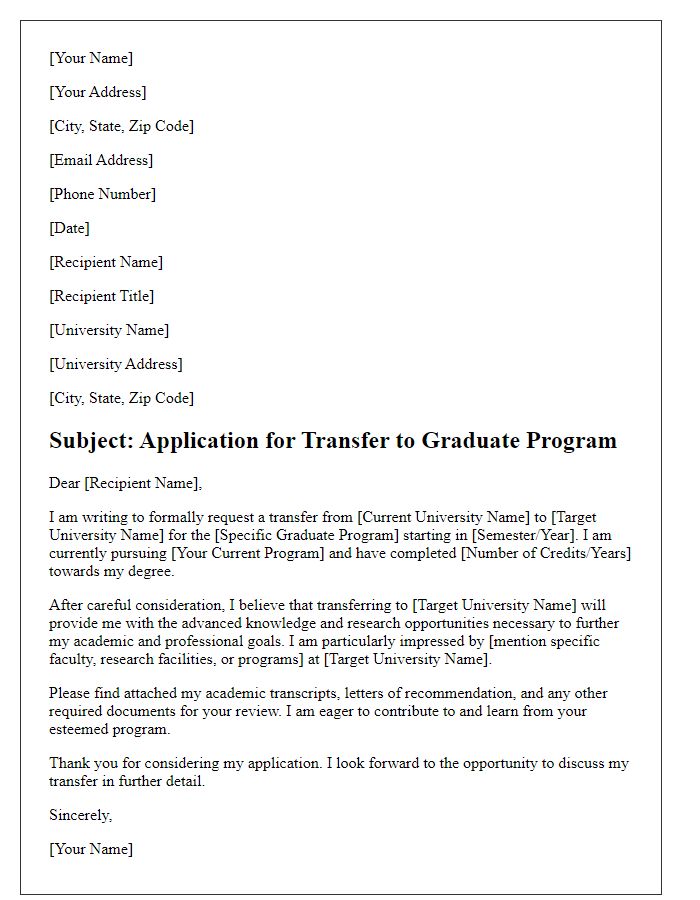
Letter template of university transfer explanation for personal circumstances
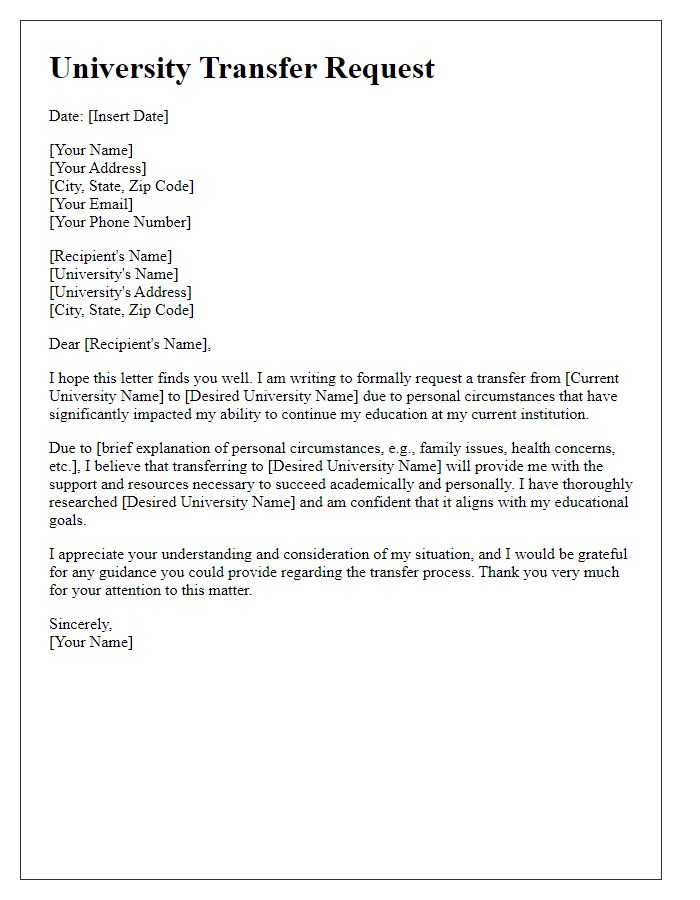
Letter template of university transfer justification for better program fit
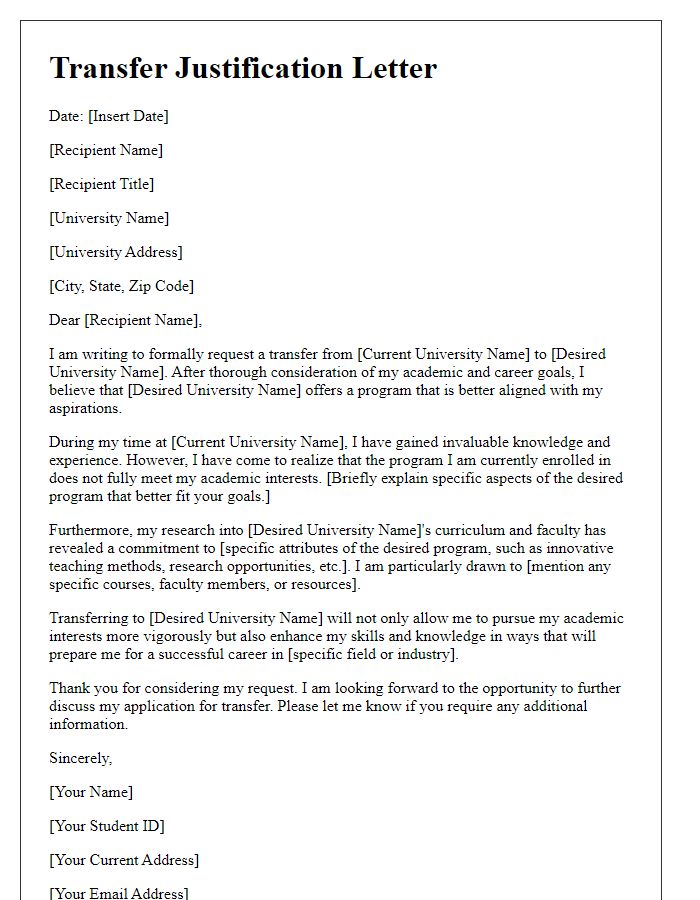

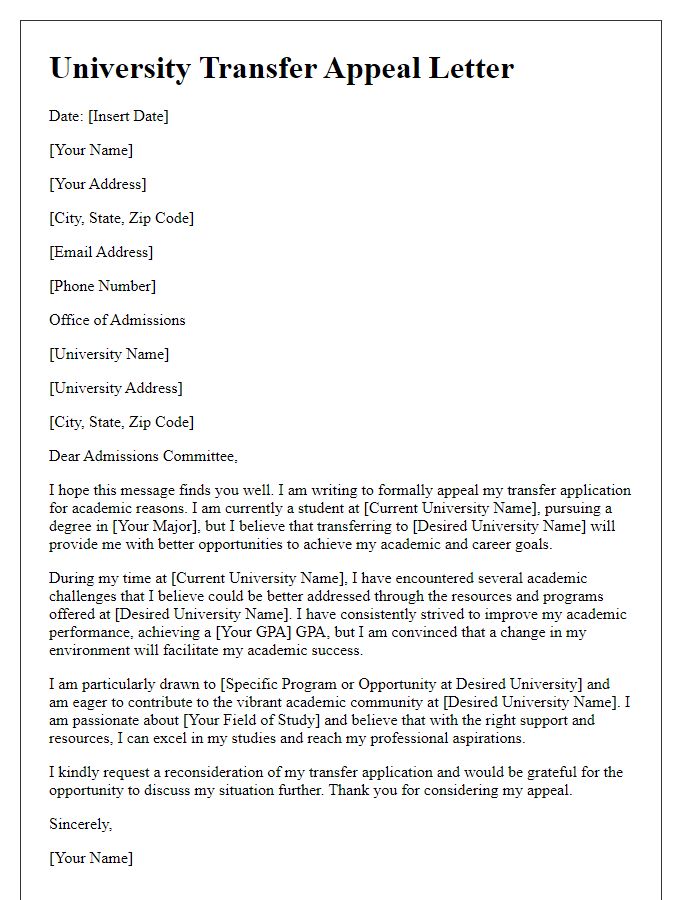
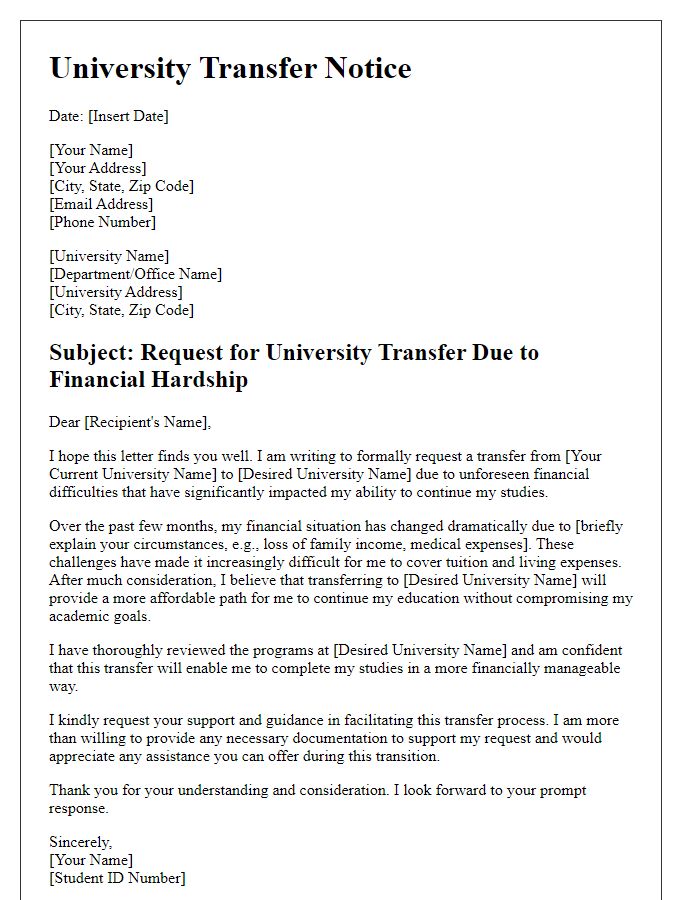
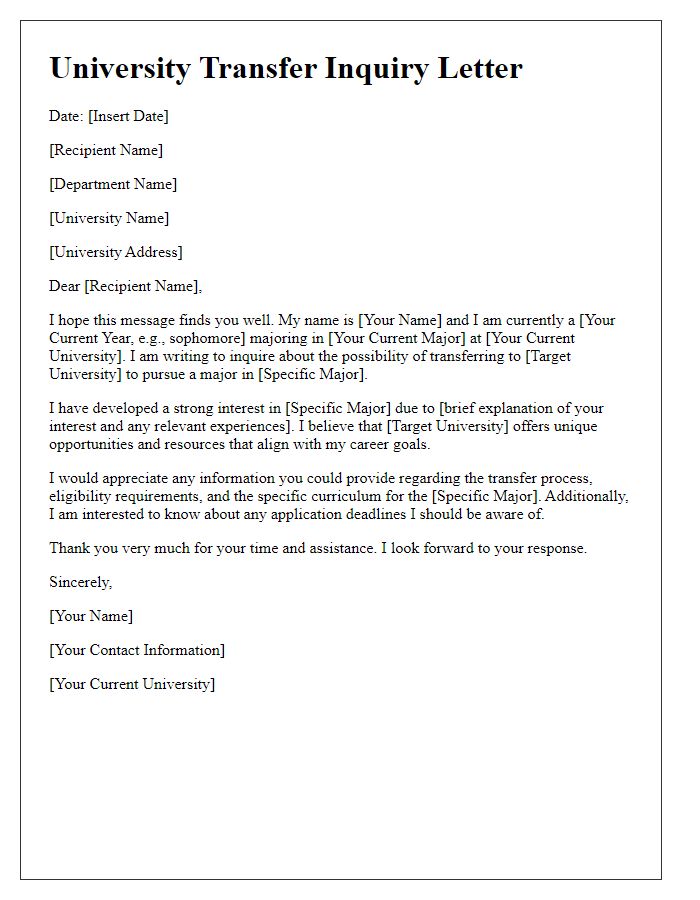
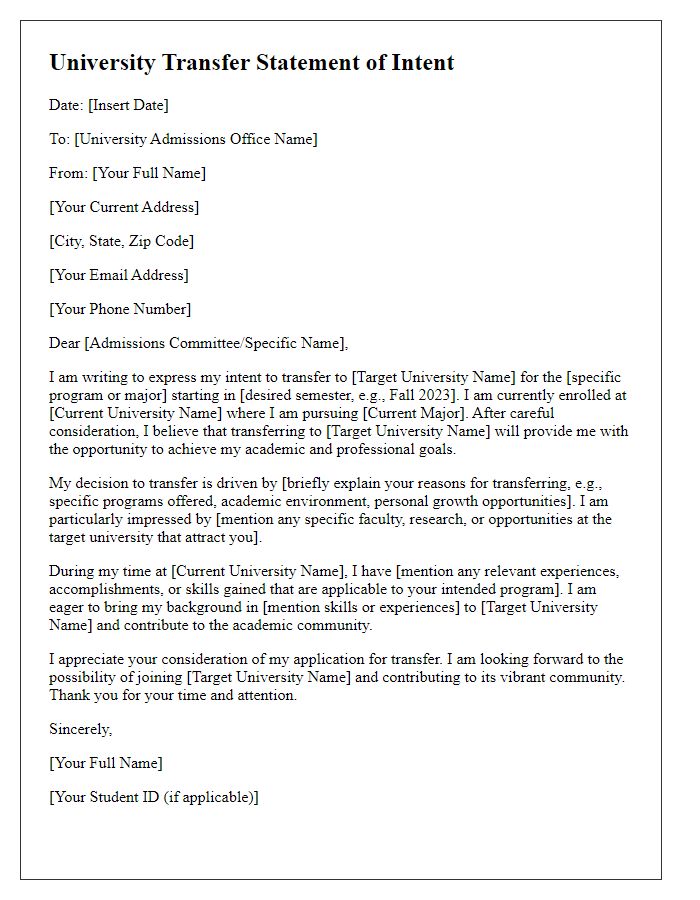
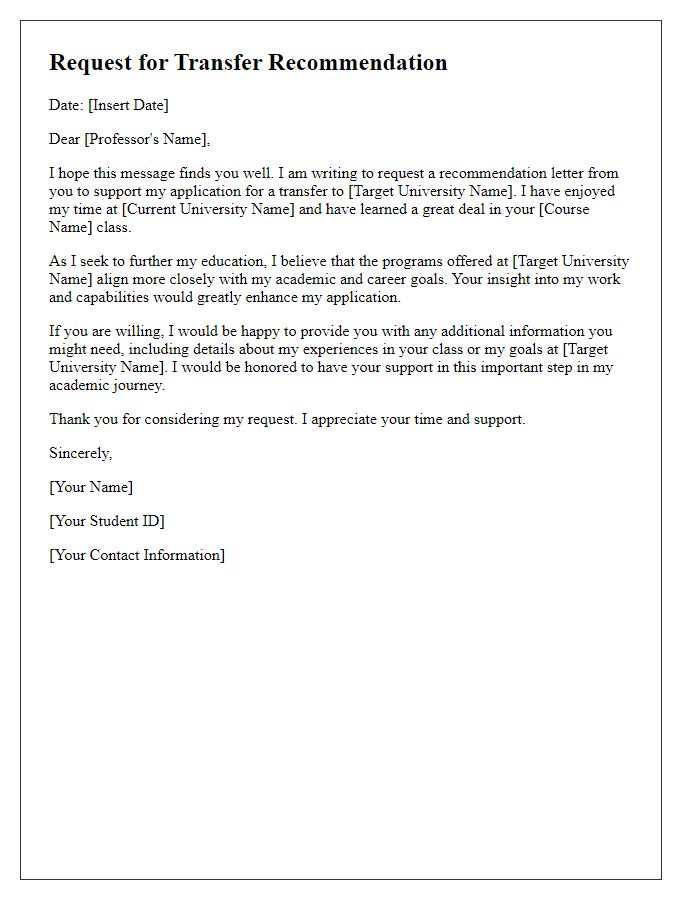
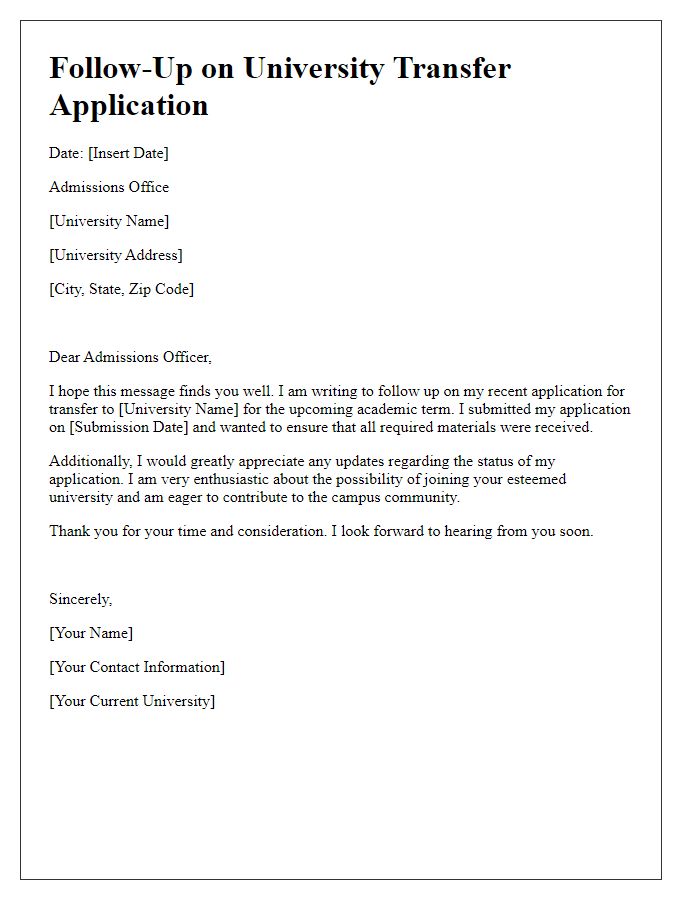

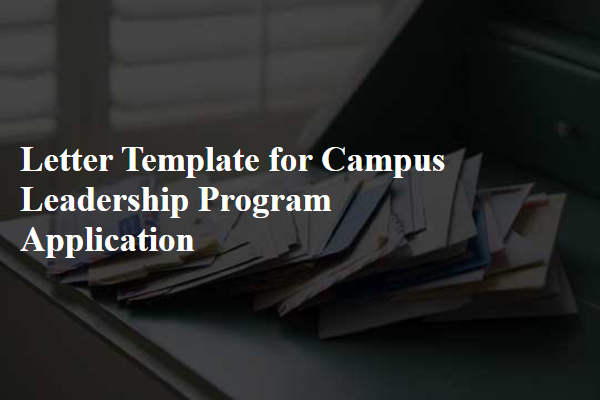
Comments